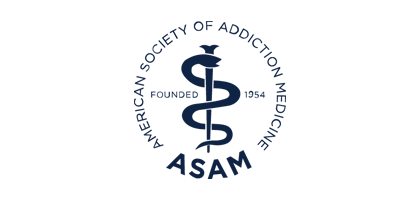Blog
ASAM and NJSAM Comment on the Passage of Legislation Mandating Six Months of Addiction Treatment in New Jersey
The New Jersey Society of Addiction Medicine (NJSAM) and the American Society of Addiction Medicine (ASAM) commend Governor Chris Christie (R-NJ) and the New Jersey legislature for taking up the issue of access to addiction treatment and prevention of opioid misuse and working tirelessly to respond to the ongoing opioid addiction and overdose epidemic. On Wednesday, February 15, Gov. Christie signed into law a sweeping piece of legislation that mandates insurance coverage for up to six months of inpatient and outpatient addiction treatment, as well as imposes a five-day limit on initial opioid prescriptions for acute pain and requires continuing medical education for prescribers on opioid misuse. Gov. Christie spent most his 2017 State of the State address on the impact of the opioid addiction and overdose epidemic in New Jersey, expressing his desire to work with the legislature to quickly pass a law to provide coverage of treatment for those who need it.
NJSAM and ASAM appreciate the effort to ensure patients in New Jersey are receiving high-quality and comprehensive addiction treatment, as well as prevent addiction and overdose in patients through educated and responsible opioid prescribing. We commend the inclusion of a continuing medical education (CME) requirement for physicians, dentists, nurse midwives, nurse practitioners and optometrists to receive one CME credit biennially that covers opioid addiction, opioid prescribing and alternatives to opioids. It is the position of NJSAM and ASAM that mandatory education of physicians and all other health professionals licensed to prescribe, dispense or administer controlled substances is a key strategy in modifying the epidemic of misuse of and addiction to scheduled medications.
“The New Jersey Society of Addiction Medicine is grateful the state is focusing on access to quality addiction treatment as they address the opioid epidemic,” said Dr. Michael Shore, President of NJSAM. “While we may have some differences with the exact structure of the legislation, we know that the increased insurance coverage for outpatient and inpatient treatment and further education for prescribers will mean more lives saved from opioid overdose and addiction. We look forward to working with the legislature and the state to perfect the law as it is implemented and operated.”
As this new law is implemented, we encourage the legislature and state agencies to actively monitor its effects to address any unintended consequences or potential improvements of the law. Ensuring mental health and addiction treatment services are covered at parity with medical and surgical services by payers and health plans is a critical part of NJSAM and ASAM’s efforts to improve access to care. However, we are concerned with the mandating of any fixed length of treatment, as this does not result in the patient being correctly matched with the right level of care based on the type of treatment and services they need. In addition, the legislation did not specify the clinical utilization tool to be used for medical necessity review when placing patients in the level of care that they need. We recommend and will be imploring the New Jersey Department of Health to select the evidence-based and peer-reviewed ASAM criteria for this purpose.
Additionally, the five-day limit on initial prescriptions for opioids to treat acute pain is quite restrictive and may have unintended consequences. Many patients, especially those who do not have a primary care physician, would have difficulty following up within five days if another opioid prescription is necessary for their acute pain. A patient’s employment, transportation limitations and potential disabilities are all factors that could prevent a patient from following up in order to get further acute pain treatment. NJSAM and ASAM believe some flexibility and/or modification of the five-day limit may be in the best interest of the patients requiring opioid analgesia for their acute pain.
